BROKER RISK MANAGEMENT
WEEKLY PRACTICE TIP
SCENARIO NO. 1: I am a listing agent. The buyers and sellers agreed that the buyers would perform roof repairs prior to the close of escrow. The buyers undertook the roof repairs, but then canceled the escrow. The buyers are refusing to pay for the roof repairs. What should the parties do?
RESPONSE: Hopefully, the contract contains an addendum requiring the buyers to pay for the roof repairs. If so, the sellers have a right to assert a collection action. In the meantime, the sellers will need to pay the contractor to avoid a mechanic’s lien from being recorded.
SCENARIO NO. 2: The buyers and sellers agreed that the buyers would pay for pest work prior to the close of escrow. The pest work was more expensive than originally quoted or anticipated by the parties. The buyers are refusing to pay the pest work and close the escrow. The sellers are refusing to pay it and the pest control company is threatening to record a mechanic’s lien. What do I do?
RESPONSE: This has now become a legal dispute between the buyer and the seller. Recommend that your clients retain counsel to address it. However, if the drafting of the addendum was ambiguous, or the parties have accepted risk for which they otherwise would not be responsible, the real estate agents could have liability.
SCENARIO NO. 3: The buyers and sellers agreed that repairs would be done to the property prior to the close of escrow. The buyers undertook the repairs themselves instead of using a licensed general contractor. They are now refusing to close the escrow and the sellers are going to have to repair the buyers’ work. What happens next?
RESPONSE: A legal dispute has now arisen between the buyers and sellers. Refer your client to qualified California legal counsel before moving forward. As with Scenario No. 2, if the parties were not properly advised of the risks the agents could have liability.
DISCUSSION: Allowing a buyer to undertake repairs to the property prior to the close of escrow is a significant risk. If at all possible, that risk should be avoided. The risks include the following:
- After undertaking the repairs, the buyer may choose not to purchase the property. In that case, the seller will need to pay for the repairs to avoid a mechanic’s lien from being recorded by the contractor, and assert legal action against the buyers to recover the amounts paid.
- The repair work could be more expensive than anticipated leading to a dispute between the buyer and the seller as to who is going to pay for it.
- The buyers may undertake the work themselves or hire a contractor who undertakes defective work or work that is objectionable to the seller. If the buyers do not close the escrow, a legal dispute will arise between the buyers and the seller.
- The buyer hires a contractor who, while working on the seller’s property, damages a part of the seller’s home. The contractor was not licensed and has no insurance. Buyer denies responsibility.
As indicated, it is recommended that if repairs are going to be undertaken at the buyer’s expense, both parties sign an addendum approving the invoice or work to be done, the buyer deposits a sufficient amount in escrow to cover the repairs, which can be released prior to the close of escrow to the contractor for payment.
PRACTICE TIPS:
- It is recommended that the buyer refrain from undertaking repairs prior to the close of escrow to avoid unnecessary risk.
2.. If the buyer is going to undertake repairs prior to the close of escrow, please talk to your manager about the risks.
- If you are representing a seller and a buyer is facilitating repairs prior to the close of escrow, the seller should be warned about the potential risks outlined herein and advised to seek assistance from qualified California real estate attorney if they have questions or concerns about the potential legal risk.
WEEKLY PRACTICE TIP: DO NOT FORWARD TO CLIENTS. This Weekly Practice Tip is an attorney-client privileged communication for the exclusive use of clients of Broker Risk Management and their agents. It may not be reproduced or distributed without the express written consent of Broker Risk Management LLP. The advice and recommendations contained herein are not necessarily indicative of standards of care in the industry, but rather are intended to suggest good risk management practices.
